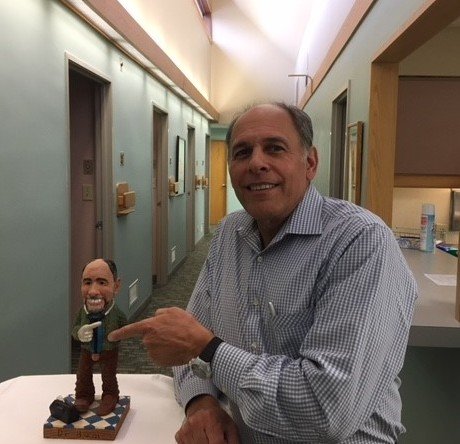By Alan Baumgarten, MD, MPH
March is colorectal Cancer Awareness Month and a great time to raise awareness about this preventable disease.
Colorectal Cancer is the third most common cancer in the United States and among cancers that affect both men and women, colorectal cancer is the second leading cause of cancer-related deaths. Colorectal Cancer affects people in all racial and ethnic groups and the risk of developing colorectal cancer increases with advancing age. More than 90 percent of cases are in people aged 50 and older.
So here is the good news, if everyone age 50 and older were screened regularly, 6 out of 10 deaths from colorectal cancer could be prevented. The providers and staff of The Family Health Centers can work with you and your family members to insure that you receive the right colorectal screening test at exactly the right time.
What is Colon Cancer Screening?
• If you’re aged 50 to 75, get screened for colorectal cancer regularly. If you’re between 76 and 85, ask your doctor if you should be screened.
• Some people are at a higher risk than others for developing colorectal cancer. If you think you may be at increased risk, talk to your doctor about when to begin screening, which test is right for you, and how often to get tested.
• There are several screening test options. Talk with your FHC provider about which is right for you.
• Colonoscopy (every 10 years).
• High-sensitivity guaiac fecal occult blood test (FOBT) or fecal immunochemical test (FIT) (every year).
• Sigmoidoscopy (every 10 years, with FOBT or FIT every three years).
• Sigmoidoscopy alone (every 5 years).
• Stool DNA test (FIT-DNA) every one or three years (Cologuard).
• CT colonography (or virtual colonoscopy) every five years.
Other Colorectal Facts
Precancerous polyps and colorectal cancer don’t always cause symptoms, especially at first. You could have polyps or colorectal cancer and not know it. That is why having a screening test is so important.
Symptoms that you should ask your FHC provider about include—
• Blood in or on the stool (bowel movement).
• Stomach pain, aches, or cramps that do not go away.
• Losing weight and you don’t know why.
These symptoms may be caused by something other than cancer. So if you have questions, see your FHC provider.
What You Can Do To Prevent Colorectal Cancer?
• Be physically active.
• Maintain a healthy weight.
• Don’t drink too much alcohol.
• Don’t smoke.
• Follow a diet that is high in fiber and low in saturated fats.
Remember
Colorectal cancer screening saves lives. It is one of only a few cancers that can be prevented through screening.

